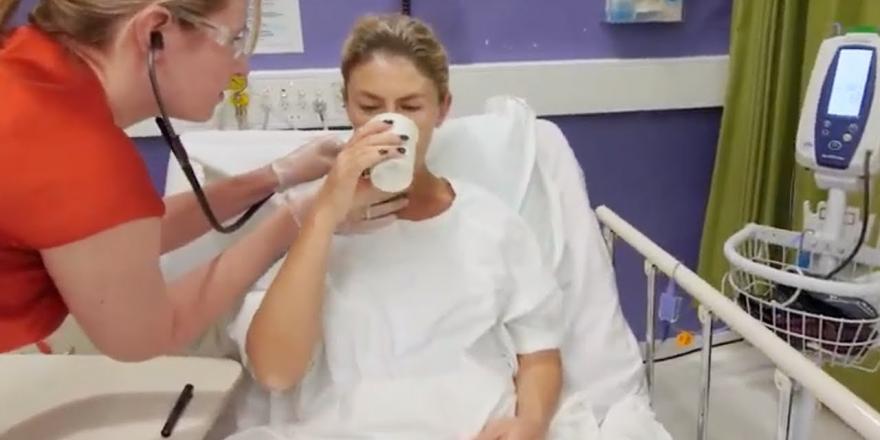
Dr Catherine Gregory: When people think of speech pathologists, they often think of us working with children in helping children speak. But speech pathologist's can help people in a lot of different ways.
Dr Lucy Bryant: A speech pathologist accesses, diagnoses, treats and managers a range of communication and swallowing disorders. So things like speech, language, literacy, fluency, voice and social communication.
Helen Blake: And because we also learn about all the anatomy and physiology you need to speak, we know about any difficulties you might have with swallowing and feeding, so we can help with that too.
Dr Amy Freeman: It's such a diverse profession. We work right through the age spectrum. So from infancy right to old age.
Associate Professor Emma Power: Speech pathologists work with individuals, but we also want to change systems. So, can we make systems accessible for people with communication and swallowing disorders.
Professor Bronwyn Hemsley: Here at UTS in Speech Pathology, we're looking to prepare practice-ready graduates so they're ready to go out and perhaps work in a private practice or eventually run their own private practice.
Dr Lucy Bryant: We have specialized learning classrooms that offer our students the chance to work in small groups to apply the skills that they learn, rather than just being lectured and obtaining loads of knowledge, so that students can actually apply their skills in the types of settings that they would see in clinic rooms.
Professor Bronwyn Hemsley: The other thing we're doing is helping them to work with other professionals, inter professional practice. The job prospects for our graduates are extremely good and growing.
Dr Amy Freeman: Speech pathologists work in hospitals, health care settings, community health, schools, mental health, private practice. It's just so broad, it's a really diverse range of settings.
Professor Bronwyn Hemsley: And we're really focused on the future of Speech Pathology, so areas such as virtual reality, augmented reality, gaming technologies, the smart home devices and 3D printing of food are all areas that Speech Pathology might be going into.
Harmony Turnbull: I chose to be a speech pathologist because I really like the mix of science together with really connecting with people and making a different in people's lives. Dr Lucy Bryant: I chose to be a speech pathologist because I believe that every human needs to have the ability to communicate.
Dr Amy Freeman: I knew I wanted to work with people and I loved science and I loved teaching.
Associate Professor Emma Power: I really loved communication. I love science. I like connecting the two because we're in a profession that involves interpersonal skills where we have to deliver the science through the medium of communication.
Helen Blake: I also love the fact that I'm actually helping people to be able to participate fully in whatever opportunities they want to have across their life.
A UTS graduate is a work-ready individual who is equipped with the skills and knowledge to become the next innovators in their profession. So why does Speech Pathology at the Graduate School of Health stand out?

Learn about stuttering at the Australian Stuttering Research Centre.
The world-renowned centre at the Graduate School of Health works to improve the lives of people who stutter and their families.

Innovative and practice-based
Using digital health and assistive technologies, you will learn the skills to effectively locate and sift through evidence for treatment plans.

Be part of the world-first
Our ‘Social Media in Speech Pathology’ subject looks at how technology can be used for professional purposes in the speech pathology environment.

Modern facilities and tools for learning
Practice clinical skills in a simulated learning environment, use virtual reality for therapy and practice telehealth at our Primary Health Clinic.

Be your own boss
Our ‘Integrated Practice in Speech Pathology’ subject will provide insight and knowledge you need to set-up your own clinic in the future.

